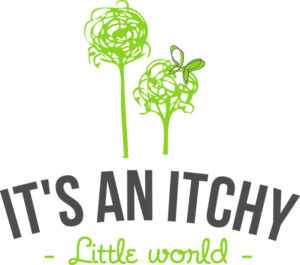Why Probiotics for Eczema In Children Are Worth Trying

By Sabra Way (bio below)
Probiotics often come up when discussing possible supplements to use for eczema. The question is what are the best probiotics for eczema? When do you use them and how will they help? In many previous studies involving atopic dermatitis, the probiotics were given to pregnant mothers and then continued in the infant after birth. Results were great, but what if a child didn’t receive probiotics inutero? Will probiotics given only after birth help a child’s eczema? Because probiotic strains have different effects, the results have been variable. However, in one new study, the benefits of probiotics for eczema in children has finally been documented. In this study, two probiotic strains ( Lactobacillus paracasei and Lactobacillus fermentum) were either given singly or in combination and tested against a placebo in children 1-18 years of age with moderate atopic dermatitis. After three months, eczema symptoms (affected area size, redness, oozing, scratching, skin thickening and dryness) in the probiotic groups were reduced, and this effect remained for another month without probiotic supplementation. The probiotic group also had improved quality of life measuring things like sleep, symptoms, feelings and activities affected by their skin. Atopic dermatitis improved especially in children younger than age 12, who had breastfed longer than six months.
The intestinal microbiota is a complex environment influenced by many factors. As we become older our microbiota, is less amenable to alteration, and this may be why children older than 12 years of age had a lower response to probiotics for eczema. Children with food sensitization like a food allergy or food induced skin allergy may respond better because probiotics modulate immune responses. As well, our response to probiotics is moderated by our genetic background, diet and lifestyle.
What impact would using the probiotics for eczema longer than the three months be? Would there have been a consistent improvement in quality of life and symptoms of eczema in children? We don’t know the answer, but a healthy microbiome takes constant management. If not tended, it will usually revert to its former configuration. As well, the children were not asked to change their diet and diet has a large impact on our microbiome. Your microbiome is made up of what you eat, consistently. It thrives on a high fibre, unrefined diet. We are what our bacteria eat so without diet change, alterations in the children’s microbiota may have been minimized or reduced.
Takeaways:
- Certainly try probiotics for eczema relief. There is evidence that it can improve bodily function and skin health. Speak with your physician before starting any new supplement.
- Children under 12 and who breastfed longer than six months may respond best.
- Look for one or both of these probiotic strains, both Lactobacillus paracasei and Lactobacillus fermentum, in the supplement you choose.
- We could only find one formula with both strains: HMF Multi Strain by Genestra (top allergen free).
- Another option would be to take two formulas that each only contain one of the strains. Lactobacillus paracasei: Pro Bio by Enzymedica OR LactoPrime Plus by Klaire Labs (both are free of top allergens) AND Lactobacillus fermentum: Pro Bio PCC by Pharmenex.
- Combine it with a healthy whole food diet. We recommend recipes from the Whole Life Nutrition Cookbook.
- Further points on how to improve your microbiome can be found in our post: Are Antibiotics Contributing To The Rise in Food Allergies?
Have you tried using probiotics for eczema? For you? For your child?
Please keep in mind that I am not a medical professional and the contents of this post should not replace medical advice. If you’re experiencing severe eczema or have a topical infection, it is always best to seek medical advice from a physician immediately.

FROM: Contributors, Eczema

Thank you for this post. We drink Wallaby organic Kefir which I’m glad to find does have Lactbacillus paracasei in it (but not fermentum). I’ve been giving it to my 23 month old son with eczema for about 5 months. I started out giving him probiotic powder but switched to Kefir because it feels more like a real food to me. I’m hoping eventually his microbiome will strengthen but haven’t seen results yet. Thanks for the info and encouragement to keep it up.
Hi,
thank you for the information, i am curious are these probiotics ok for breastfeeding mom? i ahve 3 months old daughter which has also food allergy((
Hi there – Probiotics are generally acceptable for pregnant and nursing mothers, but it’s always best to get the ok from your physician before starting any new oral therapies.
Thanks for this info. We have been using the Genestra brand of probiotics (mentioned in your article) for about 15 days now. It is hard to know if it is really working, because, as you noted, diet has a large and probably more important part to play and I definitely notice an immediate difference based on what my daughter eats and her eczema (e.g. If she has dairy milk or ice cream, she will be scratching all night all over her body). I am experimenting with different times of when she takes the probiotics during the day. Any advice or insights on that?
For probiotics with kids, it’s best to work with your physician, but it seems that usually the child needs at least one month before results can be seen. As to when to give it to them, there really doesn’t seem to be a consistent time of day or with our without food ideal in place. I think if you follow what’s recommended for the particular probiotics you’re giving your child, that would be best.
Hello
You’re article is informed and seems really helpful but the links at the end for the priobiotics all appear to be for adults? It seems really difficult to find suitable childrens one in the UK. Hope you can advise me.
Thanks
Kate